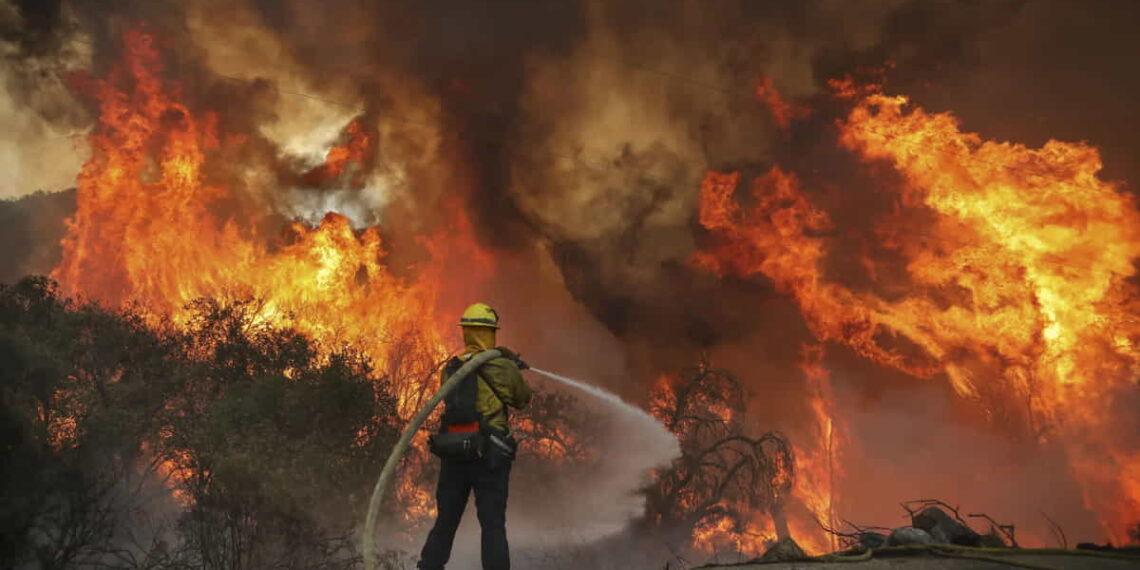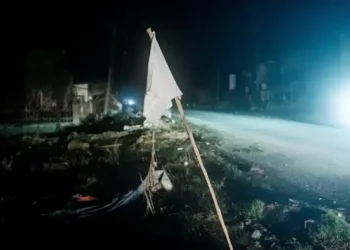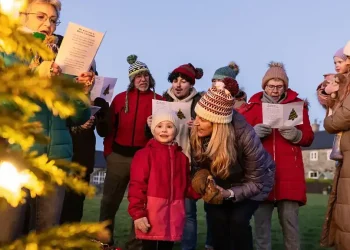Wildfires and Mental Health: Long-Term Impacts and How to Cope
Wildfires not only threaten physical safety but also have a lasting effect on mental health, sometimes lingering for years. Dr. Jyoti Mishra, associate director of the UC Climate Change and Mental Health Council at the University of California, San Diego, knows the stress of living in an area at risk. While her city isn’t facing wildfires currently, her family from Los Angeles sought refuge at her home due to the proximity of recent fires.
Mishra explained that uncertainty—such as worrying about the safety of homes or entire neighborhoods—can lead to mental health challenges. Her research on the 2018 Camp Fire in Northern California revealed that people directly affected by wildfires were far more likely to suffer from anxiety, depression, and post-traumatic stress disorder (PTSD) compared to those who weren’t impacted.
The effects of wildfires extend beyond the immediate threat. Mishra’s studies showed that cognitive functions, such as focus and attention, can be severely impacted in those exposed to such disasters. When everything around you feels dangerous, it’s hard to concentrate on anything else.
The Immediate and Long-Term Mental Health Risks of Wildfires
While the immediate aftermath of wildfires can be emotionally destabilizing, studies highlight that the long-term mental health risks are significant. The immediate stress of evacuations can lead to anger, sadness, shock, and frustration. Common reactions include a loss of appetite, sleep disturbances, nightmares, and, for some, turning to drugs or alcohol as a way to cope.
In addition to these short-term symptoms, long-term conditions like depression, anxiety, and PTSD can develop and persist for months, or even years. PTSD, in particular, can last from three months to a decade following a wildfire.
The Hidden Danger of Wildfire Smoke
Another element that exacerbates mental health challenges is wildfire smoke. Dr. Yang Liu, chair of environmental health at Emory University’s Rollins School of Public Health, found that exposure to wildfire smoke significantly increases anxiety disorders, particularly in women, girls, and older adults. His 2024 study revealed a notable increase in emergency department visits related to anxiety during major smoke events.
The smoke itself, with air quality levels 10 to 20 times worse than the national average, can trigger anxiety and other health issues. Liu urges people to stay indoors as much as possible, close windows, avoid outdoor activities, and use air purifiers to mitigate the impact on mental well-being.
The Impact on Children’s Mental Health
Children, though often more resilient, can be particularly vulnerable during wildfire events. Dr. Sabrina Renteria, a child and adolescent psychiatrist at Cedars-Sinai, noted that even when fires are not immediately nearby, children can sense the tension and stress in the air. She expects to see a surge in mental health issues among children as a result of the current wildfires.
Renteria emphasizes that open communication is key in helping children cope. Adults should be honest about their own feelings and talk through the situation, explaining that it’s okay to be sad or worried. Returning to routines as soon as possible—such as attending school and seeing friends—can help provide children with a sense of stability and normalcy.
Coping Strategies for Children and Adults
For both adults and children, seeking professional help is essential if symptoms of anxiety or depression persist. Practicing good coping mechanisms, such as deep breathing exercises or listening to music, can help reduce stress. Renteria highlighted how deep breathing helps calm the body and mind, slowing the natural response to anxiety.
Mishra also recommends mindfulness exercises, helping individuals stay present in the moment, and avoid allowing past traumas to interfere with the present. Volunteering and talking to others affected by the wildfires can also promote healing. Sharing experiences and offering support can create a sense of connection and comfort.
Protecting Mental Health After a Wildfire
Both Mishra and Renteria stress the importance of community support. Research shows that individuals with strong family and community connections are more resilient. This collective healing process helps people recover from the mental health impacts of wildfires.
For those who are not directly affected, reaching out to friends and family members in fire-impacted areas is crucial. Offering emotional support or helping meet the basic needs of those who have fled their homes can make a significant difference in their recovery process.
Conclusion: Collective Action for Mental Health and Resilience
In the face of increasing climate change-related disasters like wildfires, the mental health impacts are becoming more widespread. Mishra advocates for a shift from focusing on doom and gloom to a more positive, survival-focused outlook. Together, by supporting each other and taking the necessary steps to cope with the trauma, communities can better heal from these catastrophic events.
This article was rewritten by JournosNews.com based on verified reporting from trusted sources. The content has been independently reviewed, fact-checked, and edited for accuracy, neutrality, tone, and global readability in accordance with Google News and AdSense standards.
All opinions, quotes, or statements from contributors, experts, or sourced organizations do not necessarily reflect the views of JournosNews.com. JournosNews.com maintains full editorial independence from any external funders, sponsors, or organizations.
Stay informed with JournosNews.com — your trusted source for verified global reporting and in-depth analysis. Follow us on Google News, BlueSky, and X for real-time updates.














